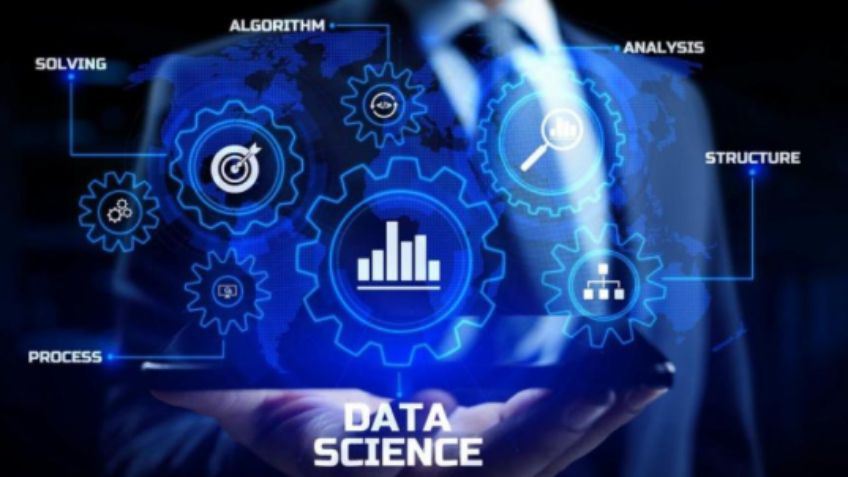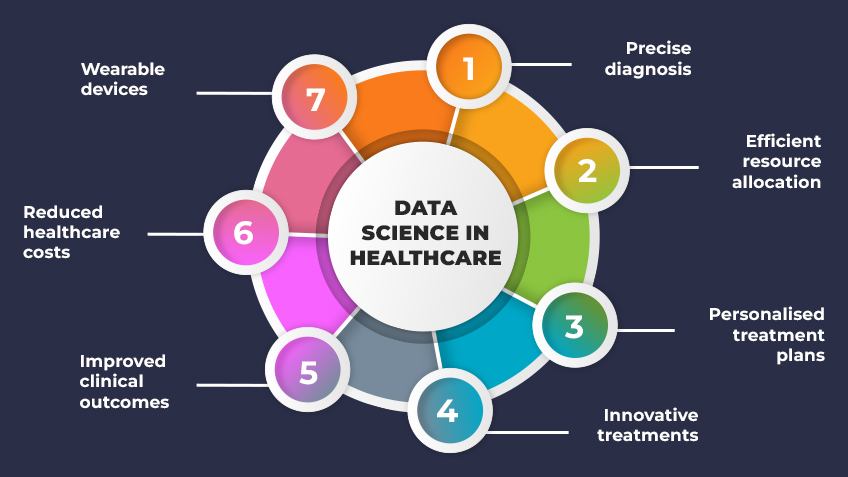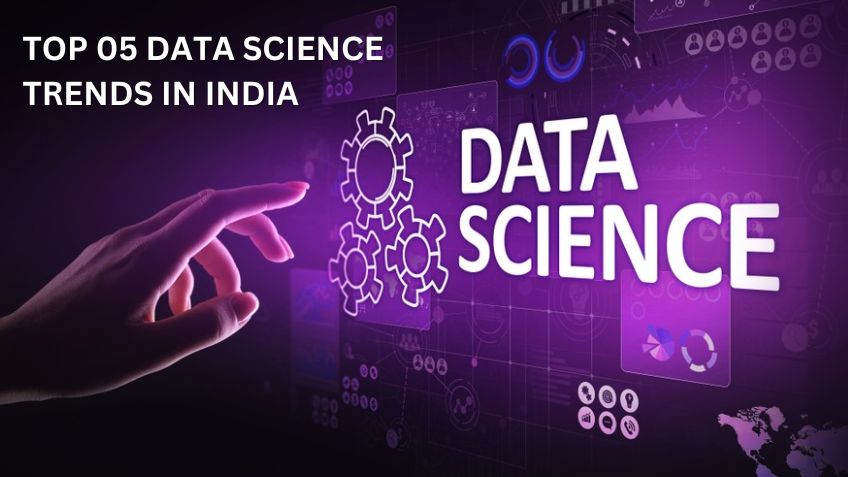By Prasenjit Das

From tech giants to startups, organisations across India are striving to leverage the power of data. But what are the latest trends in data science? What opportunities and challenges aspiring data scientists can expect? Let’s dive in and find out!
We have stepped into an era which is super-dominated by data. With numerous large and small players entering the Big Data and AI ecosystem, India is expected to become the largest Big Data Analytics market in the world.
Data science has become a big thing in India–be it a profession, driving innovation, enthusiasm, or just a matter of interest. The data science industry in the country has seen humongous growth in recent years. The Big Data technology and service market size in India is $2.17 billion in 2024 and is projected to reach $3.38 billion by 2029.
The country’s large population and varied demography provide rich data sources, making it a highly potential ground for data-driven innovation. This also indicates significant career opportunities for data scientists in the country.
Whether you are a data scientist enthusiast, a student, a professional, or just interested in this fastest-growing technology, staying abreast with data science trends in India is worthwhile.
In this blog, we will examine the data science trends, understand the scope of this technology, and learn about associated challenges to build a perspective on what lies in future.
Discover the top data science trends in India, let’s first start with a quick overview!
The data is pulled from multiple sources including social media, mobile, internet searches, surveys, websites, and more. This enormous data has created a new field of study i.e. Big Data. As the amount of data is massive and unstructured, it needs to be examined to make effective decisions. The entire process of extracting meaningful insights from data is not only time-consuming but also quite complex for companies. This need contributed to the advent of data science.
Data science has emerged as one of the most transformative forces which is rapidly reshaping industries and societies across the globe. By 2030, the data analytics market in India is projected to reach a revenue of $21,286.4 million.
Data science involves extracting invaluable insights from big data or huge amounts of complex data. By applying machine learning algorithms, statistical methods, and data mining techniques, data science experts identify hidden patterns, make predictions, and drive innovation.
Let’s learn about the impact of data science in various industries.
Healthcare

Data science is revolutionising healthcare. The size of AI in the healthcare market in India hit $374.7 million in 2023 and is projected to reach $6.9 billion by 2032. AI-powered data science enables personalised treatment plans, precise diagnosis, and efficient resource allocation.
By analysing patients’ data including medical records and genetic information, data scientists can predict diseases and come up with innovative treatments. This not only reduces healthcare costs but also improves clinical outcomes and speed-up drug discovery.
Finance: India’s finance and banking sector revenue rose from $575 million in 2016 to $756 million in 2017. In the finance industry, data science aids in risk assessment, investment strategies, and fraud detection.
By analysing historical data, economic indicators, and social media sentiments; data scientists create models to forecast market trends and examine creditworthiness, and future investment opportunities.
Retail: In 2023, retail analytics in India was worth $411 million and it’s expected to be a whopping $2.6 billion by 2032 which is a rapid growth of 21.4% each year.
Data science helps retailers to understand customer behaviour, personalise marketing campaigns, and optimise inventory management. It helps retailers to forecast demand and improve supply chain efficiency.
Marketing: Today, more and more businesses are using AI to improve their marketing methodologies and outcomes. Companies are expected to spend $8.51 billion, on marketing technology with AI by 2024.
By enabling targeted advertising and data-driven decision-making, data science is reshaping the entire marketing ecosystem. It helps marketers to identify potential customers, optimise marketing strategies, and measure the effectiveness of overall campaigns.
Transportation: With a massive 87% of passenger traffic and 60% of freight movement, road transport is the lifeblood of India’s transportation network. Here, data science greatly helps in improving traffic management, route planning, and logistics.
By analysing weather conditions, historical patterns, and real-time traffic, data scientists develop smart transportation systems that minimise travel time, reduce congestion, and improve fuel efficiency.

Here are the top 5 data science trends that are rapidly shaping the industries in India.
Generative AI, a specialised artificial intelligence technique is revolutionising industries by creating various types of content including text, images, and music. Generative AI is powered by advanced machine learning models that generate creative and realistic outcomes.
Key applications of generative AI include content creation, image and video generation, customer service, drug discovery, and product design.
MLOps or machine learning operations is a process that aims to deploy and maintain machine learning models efficiently and reliably. This approach involves a combination of ML best practices and software engineering.
Key benefits of machine learning operations include
Python has become a go-to language for data science and machine learning due to its simplicity, versatility, and extensive libraries. This has resulted in a high surge in Python-powered applications across multiple industries.
Python is a popular programming language because it has beginner-friendly syntax. It boasts an extensive library for data analysis, web development, and machine learning. It runs seamlessly on Windows, macOS, and Linux. Plus, it has a large and active community of developers.
As more and more businesses & companies are realising the value of data-driven decision-making, it has led to a rising demand for skilled data analysts who can extract valuable insights from large sets of data. By 2025, there will be 137,630 data science job openings.
Data analysts are essential for:
Data science is shifting from individual work to a more formalised, structured, and industry-wide approach. This evolvement is driven by the need for scalable, efficient, and reproducible data science processes.
Industrialised data science characteristics include:
Data science is rapidly expanding in India. Today, AI is the cornerstone of innovations across industries and even society. AI is a specific application of data science focusing on creating smart agents capable of doing various tasks requiring human intelligence such as reasoning, learning, and problem-solving.
With AI integration, data scientists can uncover deeper patterns, make accurate predictions, and automate many complex tasks. Here is the breakdown of key aspects.
Rise in the Demand for Data-Driven Insights
From healthcare, finance, retail, and transportation, to government sectors; almost every industry is relying on data-driven insights to make strategic decisions. This has massively contributed to the exploding demand for data scientists to help companies, startups, and government organisations make data-driven decisions.
Government Initiatives
Digital India, a government initiative is driving the technology adoption and data-driven solutions across multiple sectors. Also, many online platforms and academic institutions like Karmick Institute offer quality data science courses to make this technology accessible to a wide audience and help fill the skill gap.
Career Opportunities & High-Paying Jobs
As the demand for data scientists is high in India, they command high salaries due to specialised skills. The average pay scale of a data scientist in India is ₹9,98,656 per year, it can go higher based on location or company one is working with.
In 2022, there were more than 18,000 data science job roles in the BFSI sector in India. This field offers a wide range of in-demand roles such as data engineers, machine learning engineers, data analysts, and data scientists.
If you have an interest in this field, you can kickstart your data science career journey and carve a flourishing career in this promising industry with our advanced full stack data science with AI and ML course.
Ethical Considerations and Social Impact
India is taking many initiatives to prioritise AI safety and responsible data usage. This has created massive opportunities for data scientists to work on a plethora of projects that have a social impact. As data privacy regulations have become more stricter, data scientists play a key role in ensuring compliance and data security.
While India has emerged as one of the major data science and AI hubs globally, the following challenges hinder its full potential.
Data Quality & Accessibility
Data is difficult to consolidate and analyse as it is often fragmented across organisations and departments. The poor quality and fragmented data are one of the major hurdles in India’s data science landscape. Moreover, issues related to data quality like missing values, inaccuracies, and inconsistencies impact the insight’s reliability.
Talent Shortage & Skill Gap
While there is a huge demand for data scientists in the country, a significant shortage of skilled professionals can be seen across multiple industries. This skill gap hinders the adoption of data-driven decision-making. The industry lacks talent with essential technical skills and knowledge in the domain which limits the data science potential in India.
Ethical Considerations & Bias
Data science is becoming more powerful each day. Here, data privacy, ethical concerns, bias, and security are even more critical. Avoiding discriminatory outcomes and ensuring fairness in AI algorithms becomes a bit challenging. Addressing these issues is crucial to build trust and ensure responsible and ethical usage of data science.
Infrastructure & Computational Resources
Having a robust infrastructure and computational resources is critical for data science. India needs to invest in highly functional computing facilities, data storage solutions, and cloud infrastructure to support data processing and analysis on a large scale.
Cultural and Organisational Barriers
Cultural and organisational barriers such as traditional mindsets of people and resistance to technological changes can obstruct the adoption of data science. Overcoming these challenges requires a strong focus on data literacy and data-driven decision-making.
India’s growing data science landscape is driven by its diverse population, multiple data sources, and ascending government initiatives. The country is witnessing significant growth in data science, AI technology, and demand for skilled professionals.
Data science is transforming various industries including healthcare, retail, finance, transportation, and marketing.
However, challenges such as skill gaps, ethical concerns, data quality, infrastructure limitations, and cultural barriers can hinder the full utilisation of data science.
To overcome these challenges, India needs to promote data literacy, invest in computational resources, and foster a data-driven culture.